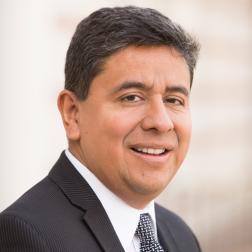Corruption and Democracy in Mexico: An Empirical Analysis

Table of Contents
Author(s)
To access full paper, download the PDF on the left-hand sidebar.
Introduction
For decades, Mexico’s single party government and concentration of power in a presidential figure prevented the country from developing strong institutions that support the rule of law. The system governing the administration of justice functioned as an arm of the executive branch and was often used against critics of the government. Even when Mexico democratized in the late 1990s and early 2000s, its judicial institutions remained weak. Mexico’s government maintained a stranglehold over the economy, organizing it as a corporativist system. The country’s parastatal economy created an environment in which government loyalists received benefits that were unavailable to critics. The weak judicial system and the corporativist economy fostered corruption with no independent institutions to check it. Today, despite progress in building institutions—such as a stronger congress, an independent Supreme Court, a strong Central Bank, an autonomous National Electoral Institute, a freer press, and numerous regulatory commissions—there has been little progress in fighting corruption, and Mexico’s democracy remains fragile. In fact, corruption levels have increased over time. The primacy of corruption as an issue in Mexico was a significant component in the election of Andrés Manuel López Obrador to the presidency in 2018, as he pledged to end corrupt practices in the government.
The paradox of López Obrador’s administration is that while he promised to end corruption, he has also advocated a return to a more centralized political power and a stronger government role in the economy—the very things that may have fostered the levels of corruption in Mexico today. This puts Mexico in a delicate position because the two structural sources of corruption—a state-led economy and a powerful executive—are the very instruments that López Obrador believes can help him fight it. In addition, this return to a centralized government affects Mexico’s democracy too, as does López Obrador’s policy of confronting autonomous institutions and trying to weaken them. This leads to serious questions: if democracy in Mexico is threatened and reduced, how does this affect corruption? Is there a relationship between these two variables in Mexico, and if so, how do they interact with each other? Given Mexico’s history, and López Obrador’s strategy, it is necessary to disentangle the relationship between democracy and corruption. This research paper aims to answer these questions, specifically if democracy has an effect on corruption in Mexico and what functional form this relationship has



